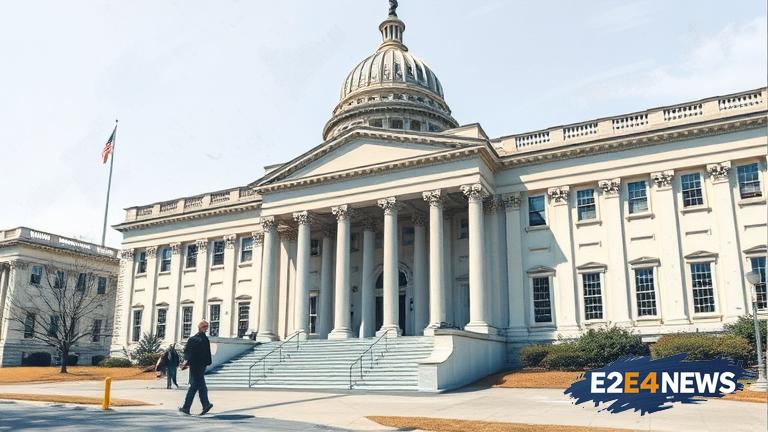The debate over cashless bail reform has been ongoing, with proponents arguing it is a necessary step towards a more equitable justice system. However, opponents claim it could have unintended consequences, including an increased risk of crime and a potential loss of federal aid. Sebastian Gorka, a former advisor to President Donald Trump, recently spoke to Newsmax about the issue, expressing his concerns about the potential risks of cashless bail. Gorka argued that the reform could lead to an increase in crime, as individuals who are released without bail may be more likely to reoffend. He also suggested that the reform could put federal aid at risk, as the federal government may be less likely to provide funding to states that adopt cashless bail systems. The cashless bail reform has been implemented in several states, including New York and California, and has been the subject of much controversy. Proponents of the reform argue that it is necessary to address the issue of mass incarceration, which disproportionately affects minority communities. They also argue that cash bail is a unfair system that punishes individuals for being poor, rather than for any actual wrongdoing. However, opponents of the reform argue that it could have unintended consequences, such as an increase in crime and a decrease in public safety. They also argue that the reform could lead to a lack of accountability, as individuals who are released without bail may not be incentivized to show up for court dates. The issue of cashless bail reform has been the subject of much debate, with both sides presenting strong arguments. While some argue that the reform is necessary to address issues of equity and justice, others argue that it could have unintended consequences that outweigh any potential benefits. As the debate continues, it is likely that the issue of cashless bail reform will remain a contentious one. The potential risks and benefits of the reform will need to be carefully considered, as policymakers weigh the pros and cons of implementing such a system. In addition to the potential risks and benefits, the issue of cashless bail reform also raises questions about the role of the federal government in providing aid to states. If the federal government were to withhold aid from states that adopt cashless bail systems, it could have significant consequences for the states and their residents. The issue of cashless bail reform is complex and multifaceted, and will require careful consideration and debate. As the nation continues to grapple with issues of justice and equity, the debate over cashless bail reform is likely to remain a prominent one. The potential consequences of the reform, including the potential loss of federal aid, will need to be carefully weighed and considered. Ultimately, the decision to implement cashless bail reform will depend on a careful consideration of the potential risks and benefits, as well as the potential consequences for the states and their residents. The issue of cashless bail reform is one that will require ongoing debate and discussion, as policymakers and stakeholders work to find a solution that balances the need for justice and equity with the need for public safety. As the debate continues, it is likely that new information and perspectives will emerge, shedding further light on the potential risks and benefits of the reform. The nation will be watching as the issue of cashless bail reform continues to unfold, and policymakers work to find a solution that works for all. The potential consequences of the reform, including the potential loss of federal aid, will be closely monitored, as stakeholders work to ensure that any changes to the justice system are fair, equitable, and effective. The issue of cashless bail reform is one that will require careful consideration and debate, as the nation works to find a solution that balances competing interests and priorities. As the debate continues, it is likely that the issue of cashless bail reform will remain a prominent one, with ongoing discussion and debate about the potential risks and benefits of the reform.
